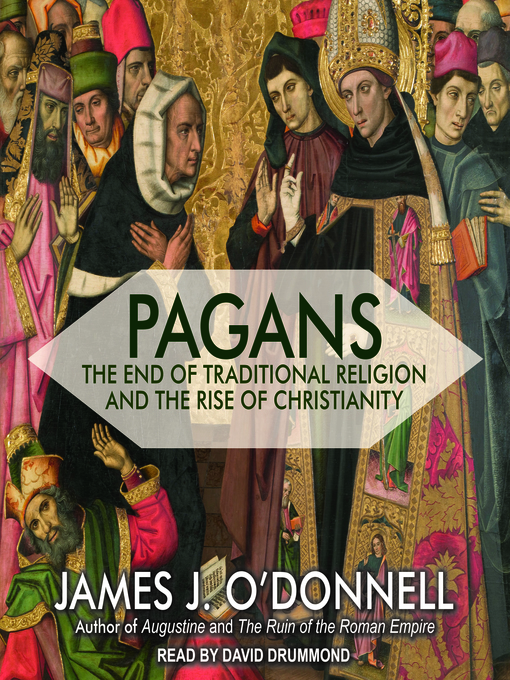Pagans
The End of Traditional Religion and the Rise of Christianity
Religious scholar James J. O'Donnell takes us on a lively tour of the Ancient Roman world through the fourth century CE, when Romans of every nationality, social class, and religious preference found their world suddenly constrained by rulers who preferred a strange new god. Some joined this new cult, while others denied its power, erroneously believing it was little more than a passing fad.
In Pagans, O'Donnell brings to life various pagan rites and essential features of Roman religion and life, offers fresh portraits of iconic historical figures, including Constantine, Julian, and Augustine, and explores important themes—Rome versus the east, civilization versus barbarism, plurality versus unity, rich versus poor, and tradition versus innovation—in this startling account.
-
Creators
-
Publisher
-
Release date
August 15, 2017 -
Formats
-
OverDrive Listen audiobook
- ISBN: 9781541491991
- File size: 226762 KB
- Duration: 07:52:25
-
-
Languages
- English
-
Reviews
-
Publisher's Weekly
January 19, 2015
The early Christian movement began amid numerous other religions in the Hellenistic world, but the now-familiar story of the rise of Christianity very often leaves out the complex relationships between early Christians and these other religions. O’Donnell (Augustine) shines a light on that omission, in meticulous detail and through lively storytelling, animating the world of ancient religions, early Christianity’s place in that milieu, and the ways that the first Christians created a category of paganism to describe other religions. In the first and second centuries, Christians were the odd ones out: “if there are many gods, people who claim to believe in exactly one god, a god few had heard of... are, functionally speaking, atheists,” he writes. O’Donnell brilliantly chronicles the growing toleration of Christianity by the Roman Empire up through the fourth century, when it became the accepted religion of the empire. He convincingly demonstrates what many have known all along: paganism is a category that modern Christians invented to define themselves against other religions and to use, often, to justify persecution of those different from Christians. This is a must-read book.
-
Formats
- OverDrive Listen audiobook
subjects
Languages
- English
Loading
Why is availability limited?
×Availability can change throughout the month based on the library's budget. You can still place a hold on the title, and your hold will be automatically filled as soon as the title is available again.
The Kindle Book format for this title is not supported on:
×Read-along ebook
×The OverDrive Read format of this ebook has professional narration that plays while you read in your browser. Learn more here.

